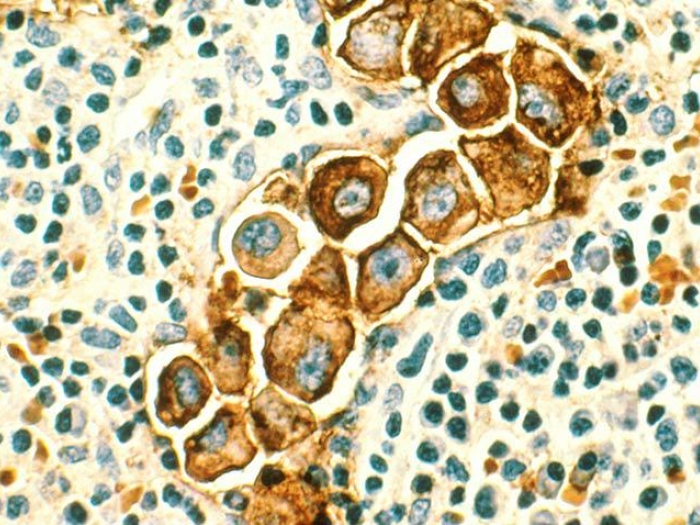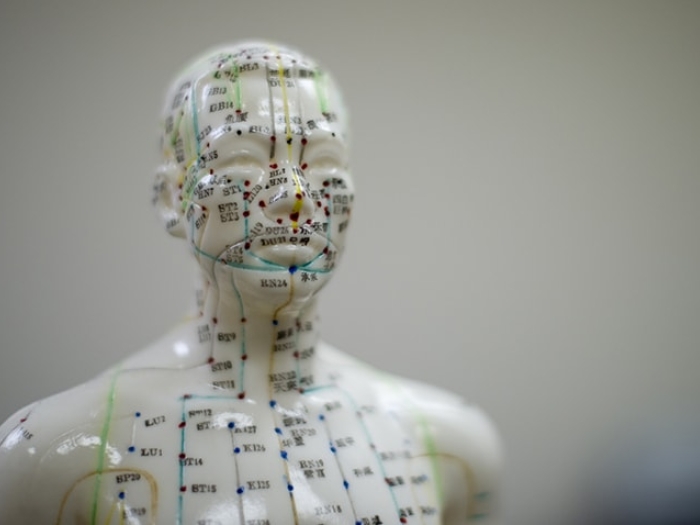In inflammatory breast cancer cells, the gene RhoC controls cell metabolism and regulates energy — a ‘vulnerability’ future treatments could exploit.
8:00 AM
Author |
Cancer cells and normal cells both divide and move. But with cancer cells, the processes are magnified; everything is bigger, faster, more.
SEE ALSO: Determining When Early Breast Cancer Is Aggressive — and When It's Not
A new study explains how cancer cells use energy to fuel this increase in motion and proliferation. The researchers identified for the first time a connection between a cancer gene that controls motility and how cancer cells metabolize energy to move and divide so quickly.
Researchers looked at inflammatory breast cancer cells and found the gene RhoC interacts with the cell's machinery at a molecular level to regulate how it produces energy. RhoC directs the cells to generate energy from glucose quickly. This wiring then drives the cancer cells to move faster than normal. RhoC also controls how cancer cells use another nutrient, the amino acid glutamine.
"This is a vulnerability for aggressive cancer cells that we are prepared to exploit. We have definitely found an entry point that lies at the heart of the cancer cell's ability to use energy," says Sofia D. Merajver, M.D., Ph.D., scientific director of the breast oncology program at the University of Michigan Rogel Cancer Center and the senior author on the paper.
"Because cancer cells are abnormal, they have limited options to survive. They need to leverage every advantage. When we find an opportunity like this to attack how cancer cells function, we create an opportunity to help destroy the cancer."
Inflammatory breast cancer is a very aggressive form of the disease that disproportionately affects young women and African-American women. Instead of a lump, inflammatory breast cancer causes swelling and changes in the skin around the breast. It often has spread beyond the breast by the time it's diagnosed.
Merajver's lab has previously found that RhoC is a key driver of inflammatory breast cancer. It's also linked to more advanced and aggressive types of lung, melanoma, pancreatic and bladder cancers.
It's essential to understand the biology and the exact mechanisms so that we can find the right target to halt this devastating disease.Sofia D. Merajver, M.D., Ph.D.
Contributing to a cure
The new findings, published in the Journal of Biological Chemistry, identify several key metabolites that RhoC specifically alters. These metabolites ultimately control how much energy is available within the cell. This is also the first study linking an oncogene involved in cancer cell motility to the metabolic processes necessary to carry out its orders to move and spread.
SEE ALSO: Social Media May Boost Satisfaction with Breast Cancer Treatment Decisions
"We are very excited to discover a connection between a known metastasis-causing gene and alterations to the metabolic characteristics of the cells. RhoC seems to cause very specific and robust changes in the inflammatory breast cancer model that differ from not only normal-like cells, but also other types of breast cancer," says study co-first author Joel A. Yates, Ph.D., a senior postdoctoral research fellow at U-M.
The researchers suggest that these metabolic and molecular vulnerabilities could be explored as potential targets for therapy. The concept expands on personalized medicine and genetic sequencing to include personalized metabolomics — a process in which treatments could be prescribed based on how much of certain chemicals are produced in cancer cells.
"Through metabolomics we can describe exactly what is happening at the molecular level even if we do not know exactly all the connections between the signaling proteins in the cell," Merajver says. "Gene sequencing would reveal RhoC is involved, but it wouldn't necessarily point us to the right target. It wouldn't tell us how things are wired."
The researchers plan to conduct additional experiments to understand which enzymes are most critical and could provide a good target for potential treatment. In addition, they are working with teams at U-M to develop RhoC inhibitors.
"I have wanted to cure inflammatory breast cancer since medical school, when I saw my first patient with it," Merajver says. "This is why basic science is important. It's essential to understand the biology and the exact mechanisms so that we can find the right target to halt this devastating disease."

Explore a variety of healthcare news & stories by visiting the Health Lab home page for more articles.

Department of Communication at Michigan Medicine
Want top health & research news weekly? Sign up for Health Lab’s newsletters today!





